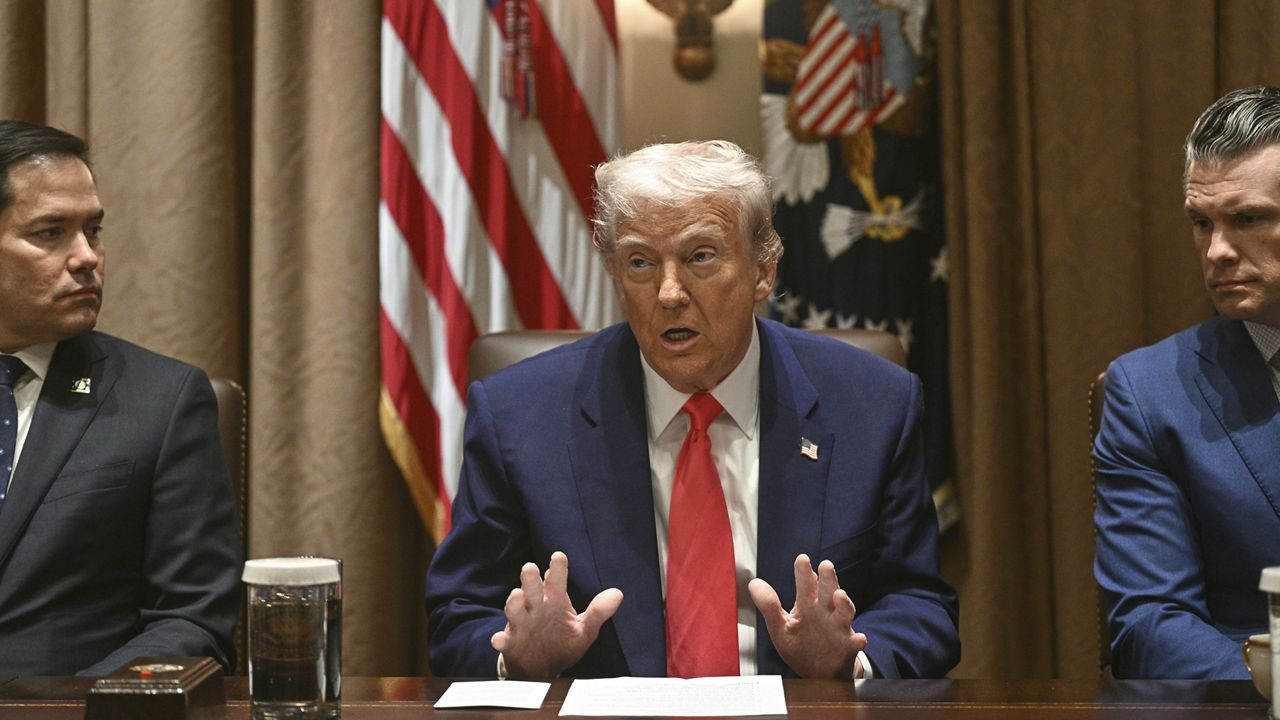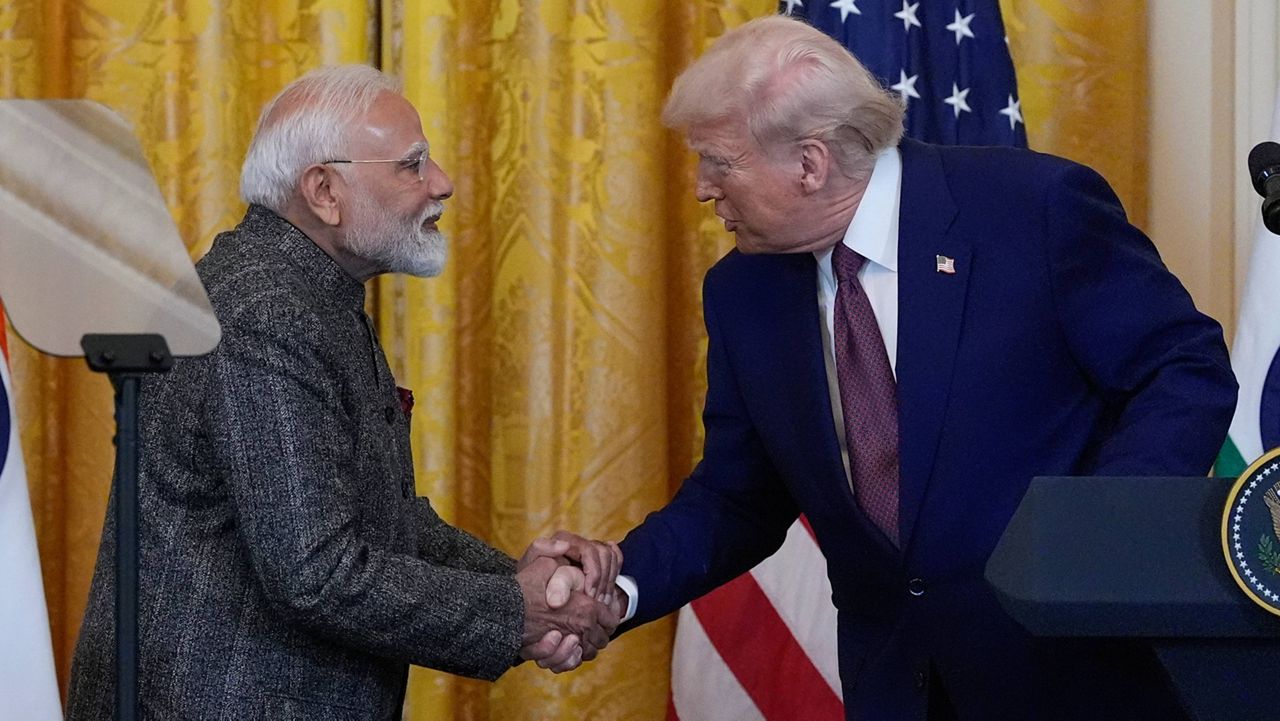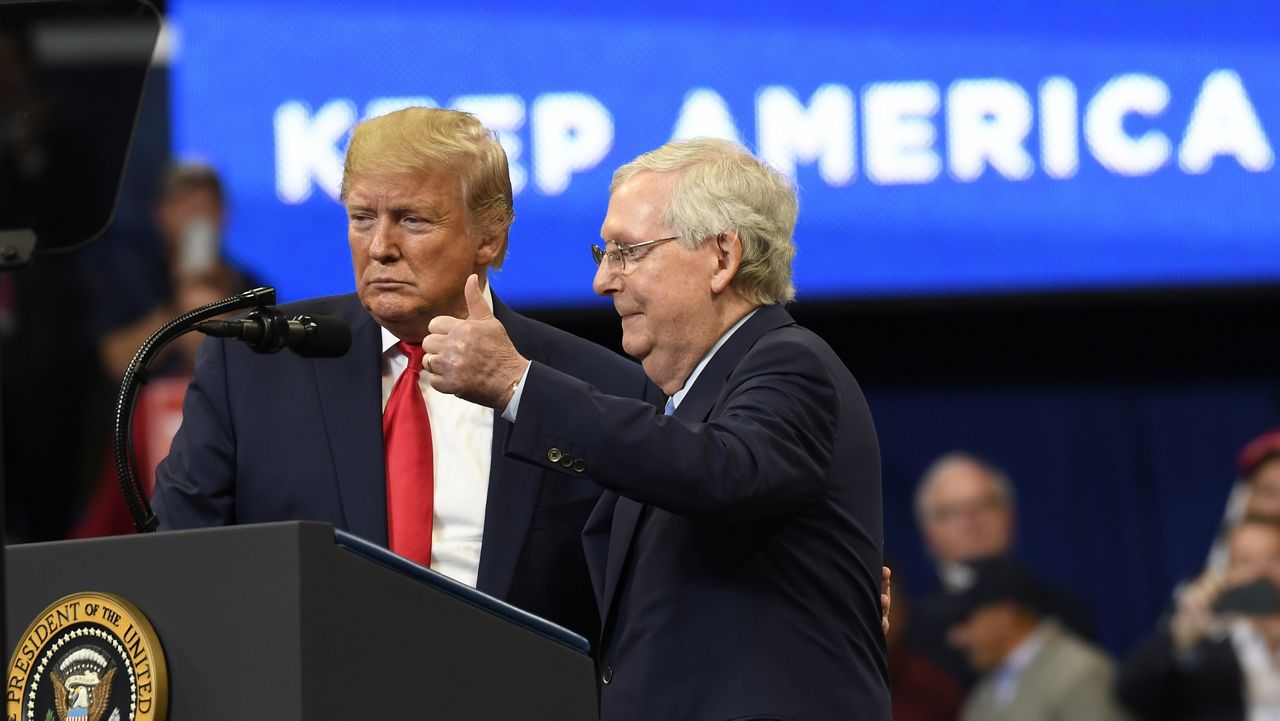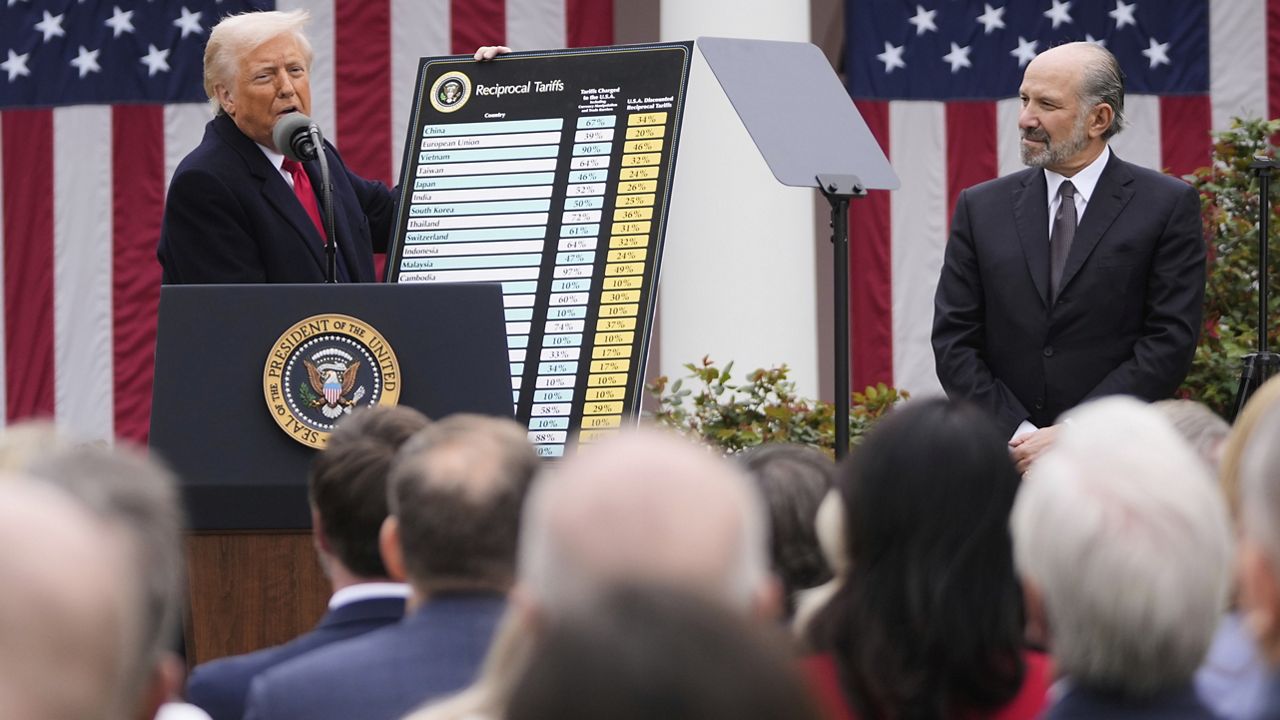WASHINGTON — A House Republican plans to introduce legislation that would limit the White House’s ability to impose tariffs without the backing of Congress as markets, U.S. financial sector leaders and America’s long-time allies on the world stage grapple with President Donald Trump’s sweeping new fees days after his high-profile announcement.
Appearing on CBS News’ “Face the Nation” on Sunday, Rep. Don Bacon, R-Neb., who said he intends to introduce the legislation as soon as Monday, said he has “beginning support” in the lower chamber for his bill, which is intended to be the House counterpart to the bipartisan one unveiled in the Senate last week.
The Nebraska Republican, known to be more moderate, argued that the Constitution “is clear” that authority over taxes and tariffs lies with Congress, calling it a “mistake” for lawmakers to have ceded some of that power to the executive branch.
“And the Constitution is clear, the House and the Senate, Congress has the power of tariffs and taxes and we gave some of that power to executive branch,” Bacon said. “And I think, in hindsight, that was a mistake.”
He went on to note that the House and Senate gave the president “emergency powers” when it comes to the economic tool and made the case that the courts may be the deciding factors in whether the national emergency in respect to the “absence of reciprocity in our bilateral trade relationships” Trump declared as the basis for his new tariffs is on solid enough footing.
“So, the courts will have to decide is what — what just happened, is this emergency powers or is this a total change in tariff policy,” Bacon said. “And I think it's really the latter.”
The bill introduced in the Senate — just a day after Trump’s highly anticipated tariff announcement — seeks to require the president to inform Congress of his or her intent to impose a new tariff within 48 hours and include the reasoning and an analysis on the potential impact on Americans. Lawmakers would then have 60 days to pass a joint resolution approving the move or else the new fee would expire.
The bipartisan legislation – led by Democratic Sen. Maria Cantwell of Washington and Republican Sen. Chuck Grassley of Iowa — has garnered the support of seven total GOP senators.
“Well, the first day of interdiction we signed up seven Republicans. So, usually you don't get first introduction and get so many people on board,” Cantwell said in her own interview on “Face the Nation” on Sunday. “But I think it shows the anxiety that people have.”
It came after four GOP senators joined with Democrats to support a resolution undermining tariffs Trump had already imposed on Canada.
Cantwell added that industry groups such as “the Retailers Association” and “Main Street Alliance” are urging Congress to take up the legislation.
Bacon noted that the bill would be “harder to pass” in the House, where Republicans have a slim majority. He argued, however, that should the legislation pass in the Senate, it would “put pressure” on the lower chamber to consider it. He added the new tariff policy’s impact on the economy at home would also be a factor.
“And if we continue to see the stock market go a certain direction or if we see inflation or unemployment shift in a bad way, I think then this bill becomes a very viable bill,” he said.
The GOP also controls the upper chamber and would need 60 votes to pass the legislation.
One House Republican, also known to be on the moderate side, Rep. David Valadao, expressed openness to supporting Bacon’s bill.
“It probably is,” Valadao said on News Nation’s “The Hill Sunday.” “I need to take a little bit better look at it.”
He added that he heard Speaker Mike Johnson is not supportive of it but he believes it should be considered.










